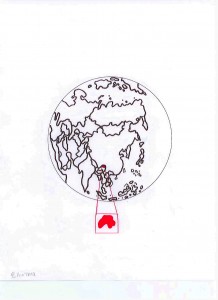BHUTAN
A. THE COUNTRY
The Kingdom of Bhutan is a small landlocked country in South Asia.
Government is an autocratic and benign Buddhist monarchy with a docile
parliament. Democracy is slowly developing. India plays a major role
in the external affairs. The government fiercely protects its own
sovereignty. Bhutan has an undeveloped subsistence economy, causing
rising unemployment. Infrastructure development is very difficult due
to isolation and topography. Tourist numbers are strictly controlled.
B. THE PEOPLE
The population is ~709,000 and official language Dzongkha.
There are significant differences over the size of population of ethnic
Nepalis, many of whom were driven out of Bhutan from 1989 onward,
culminating in what effectively amounted to ethnic cleansing.
~72.5% are Tibetan/Himalayan (Bhutanese, South Himalayan, Tibetan),
~27.5% South Asian.
Around 23% live in poverty, but Bhutan is rated one of the world’s
happiest countries.
C. RELIGIONS AND CHRISTIANITY/PENTECOSTALISM
The state religion is Vajrayana Buddhism. Other religions are barely
tolerated foreign intrusions and proselytism is illegal. Church
buildings are not allowed, and Christians face the loss of their
citizenship, of other benefits – such as free education, healthcare,
employment – and of access to electricity and water. At times,
harassment and beatings occur. ~74.56% are Buddhist, ~22.43% Hindu,
~2.11% claim to be Christian, ~0.5% Muslims, ~0.4% Ethnoreligionist.
In the Christian category:
~1.24% are Independent, ~0.67% Protestant, ~0.2% Catholic.
Evangelicals represent ~1.8% of the population.
Charismatics represent ~1.1% and of those ~0.1% are Pentecostals.
Donna Siemens
References:
http://en.wikipedia.org
Operation World, Jason Mandryk. Colorado Springs: Biblica Publishing, 2010

